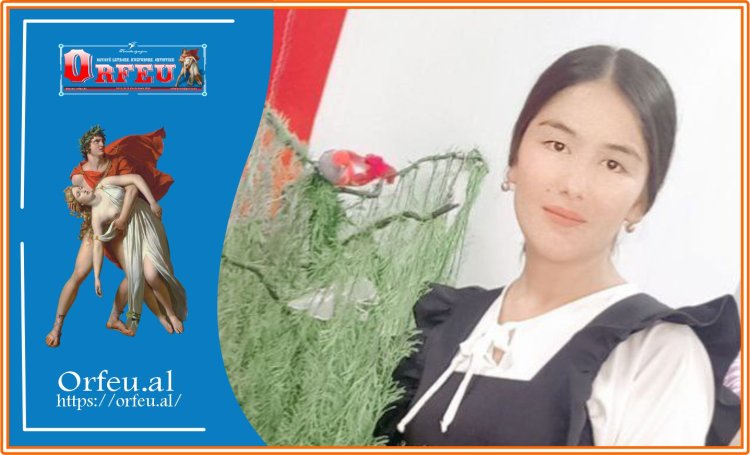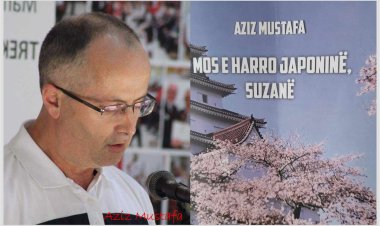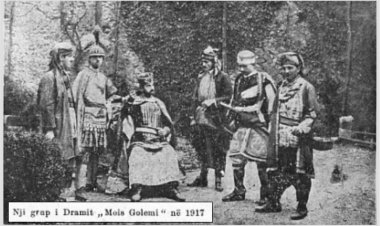Publications, the novel "Between Two Doors"

The novel "Between Two Doors" contains events that took place during the Second World War. This work skillfully describes the events of the people in the village before and after the war. Because the writer with life experience carefully studied all the events in the novel, each character occupies a deep place in the reader's heart. The novel is composed of seven parts and forty-seven chapters, and the events in the novel are narrated by nine characters: Robiya, Kara amma, Kimsan Husanov, Muzaffar Shomurodov, Munavvar Aliyeva, Rana, Umar Zakunchi, Olimjon Komilov. is a written work.
In the novel, the writer paid special attention to the image of women. Virginia is able to create an image typical of an Uzbek mother through the image of Kara Amma.
" ... Where is sleep? Imagination leads to a thousand streets. Who am I... God saw my child, who put all six of them on the ground and stood alone.
Where are you with? In which countries are you walking?! Is Joe healthy? Okay, even if you're limbless, I'll go and carry you on a stretcher, would you mind? I was carrying it in the palm of my hand! Your father has passed on the way. Now at least put me in the ground with your own hands! No, I'm not crying, baby! I don't cry. Even if I cry... No, my son. When I cry, you are disturbed..."
From this passage, we can see that, as we mentioned above, the character of Kara Amma shows the qualities of kindness and patience typical of an Uzbek woman. The poor mother abandoned her six children and adopted virgins Kimsan. Nevertheless, the brutal war took Kimsan away. He moved towards her with warmth. Mushtipar's mother's longing for her child's path was reflected. It can be seen that because the author skillfully describes these parts of the novel, every reader who reads the novel will have tears in their eyes involuntarily.
In the novel, there is another character of a woman who suffered from the war, was orphaned by her mother and grew up without a mother - Rabiya.
"... When I cry, you are disturbed. Rabiya burns. My daughter's eyes are still on the door. She sees. She sees you. If there is another girl, she will look at her skirt to see if she is there. He used to touch one of them. The suitor didn't come out of any place. He would say that if he had a girl, that would be it...". In this sentence spoken by Kara Amma, we can witness that Rabia is distinguished from other characters by her loyalty to her lover. He is portrayed as a wonderful character as he continues to faithfully wait for Kimsan, who went to war, despite the end of the war. In a word, she is a character who has her own place in the novel with her modesty, loyalty, and loyalty typical of an Uzbek girl.
" ... Pedestrians in helmets, all of whom looked alike, rushed at me with wild screams. No, I wasn't afraid. Rather, I didn't have time to dance! A thought flashed through my mind. Well, at least I killed one, and then I jumped into the snow. I didn't know what happened. The fascist who was running quickly faced my rifle. I don't remember if I stabbed him or not...". The character of Kimsan Husanov was successfully portrayed in the novel. He took little part in the events of the novel. From the sentence quoted above, we can see that Kimsan Husanov appears as a brave, courageous, patriot who sacrifices his life for the Motherland - a young man with a belt on his waist.
In addition to the characters mentioned above in the novel, characters such as Rashid Abzi, Sister Bashor, Samadov also occupy a deep place in the reader's heart with their own qualities. There is no artificiality in this work of the writer. Adib used the method of persuasion strongly.
In conclusion, we can say that the life of rural people in the war and post-war years, their lives, brave people are praised bravely in the novel. The images of village people who did not suffer from the war, women who lost their spouses, orphaned children, old men and women who raised their children and hoped to see their happiness are depicted.
O'tkir Hoshimov expressed such thoughts about the novel "Between Two Doors":
There is a saying, "The distance between the truth and the lie is four latitudes". Believe in what you see, not what you hear. I have seen many of the people in this book myself... with the spirit... I wrote down what some of them said to pass judgment on them... I can't help but say that there are more tragedies in this book? and not a game. Fifty million of them were our people. Moreover, the war did not leave the lives of the soldiers in the trenches. He also tested people thousands of miles away. It's no wonder that the lives of our parents and brothers, who preserved their faith and humanity in difficult times, are an example for us today!"
Yusufjonova Ogilkhan. He was born in 2007 in Uchkurgan district of Namangan region. Currently a student of the 11th grade of the Specialized School.
Has more than 50 international certificates and letters of thanks.
He has a national certificate in mother tongue. Creative works have been published in international newspapers and magazines in the Republic.



 Moderator
Moderator 




